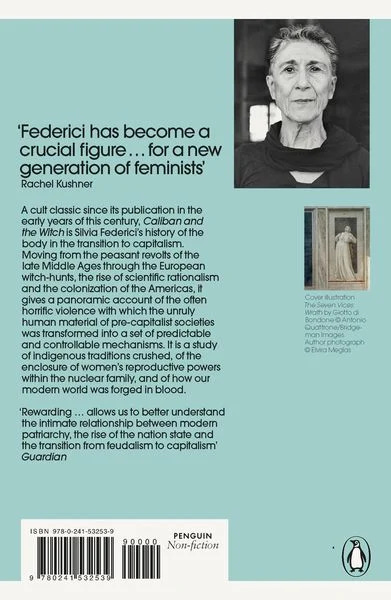Wages Against Housework by Silvia Federici
I haven’t written in a while. Life is full at the moment—work, uni, the constant juggling. I keep wanting to sit down and write something for you, but I just can't seem to find the space. Or the stillness.
But then I came across a text by Silvia Federici from 1975, and it shook me. It put into words things I’ve been circling around for so long—thoughts I’ve felt deeply, but couldn’t articulate. It’s fierce and clear and painfully relevant.
Instead of my own writing this time, I want to share with you some passages from her text— fragments that resonated with me:
Silvia Federici – Wages Against Housework (1975)
They say it is love. We say it is unwaged work.
They call it frigidity. We call it absenteeism.
Every miscarriage is a work accident.
Homosexuality and heterosexuality are both working conditions…but homosexuality is workers’ control of production, not the end of work.
More smiles? More money. Nothing will be so powerful in destroying the healing virtues of a smile.
Neuroses, suicides, desexualization: occupational diseases of the housewife.
To have a wage means to be part of a social contract, and there is no doubt concerning its meaning: you work, not because you like it, or because it comes naturally to you, but because it is the only condition under which you are allowed to live.
But in the case of housework the situation is qualitatively different. The difference lies in the fact that not only has housework been imposed on women, but it has been transformed into a natural attribute of our female physique and personality, an internal need, an aspiration, supposedly coming from the depth of our female character. Housework had to be transformed into a natural attribute rather than be recognised as a social contract because from the beginning of capital’s scheme for women this work was destined to be unwaged.
In its turn, the unwaged condition of housework has been the most powerful weapon in reinforcing the common assumption that housework is not work, thus preventing women from struggling against it—except in the privatised kitchen-bedroom quarrel that all society agrees to ridicule, thereby further reducing the protagonist of a struggle.
We are seen as nagging bitches, not workers in struggle.
Many of us still have the illusion that we marry for love. A lot of us recognise that we marry for money and security; but it is time to make it clear that while the love or money involved is very little, the work which awaits us is enormous.
By denying housework a wage and transforming it into an act of love, capital has killed many birds with one stone. First of all, it has got a hell of a lot of work almost for free, and it has made sure that women, far from struggling against it, would seek that work as the best thing in life. At the same time, it has disciplined the male worker also, by making his woman dependent on his work and his wage.
In the same way as god created Eve to give pleasure to Adam, so did capital create the housewife to service the male worker physically, emotionally and sexually.
Once housework was totally naturalised and sexualised, once it became a feminine attribute, all of us as females are characterised by it.
It is the demand by which our nature ends and our struggle begins, because just to want wages for housework means to refuse that work as the expression of our nature. To say that we want money for housework is the first step towards refusing to do it, because the demand for a wage makes our work visible, which is the most indispensable condition to begin to struggle against it.
We are housemaids, prostitutes, nurses, shrinks; this is the essence of the “heroic” spouse who is celebrated on Mother’s Day.
Capital has disciplined them [men] through us and us through them—each other, against each other.
Youth equals productivity. Attractiveness equals female productivity.
This text is fifty years old, but it feels frighteningly current.
I share it not as a relic, but as a reminder: our exhaustion is not private.
It has a history. And it has a politics.
Media recommendation:
If you are interested in Silvia Federici’s work and want to dive deeper, I highly recommend her book Caliban and the Witch: Women, the Body and Primitive Accumulation. It’s a powerful, groundbreaking analysis that connects the historical roots of capitalism with the control over women’s bodies and labor.




